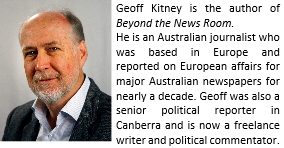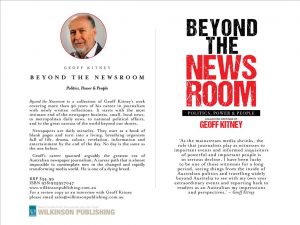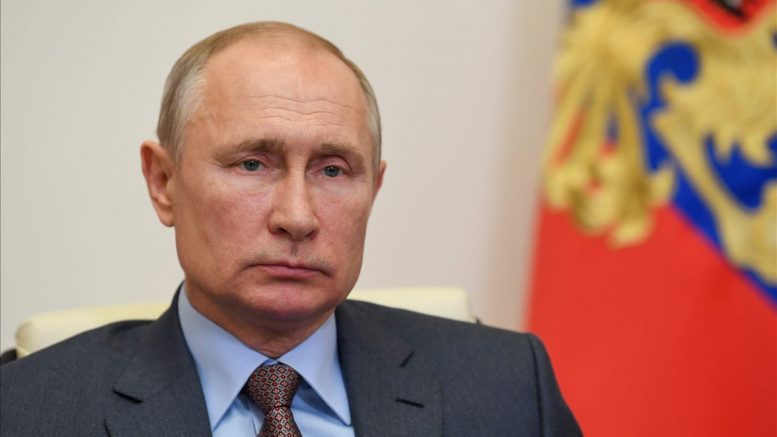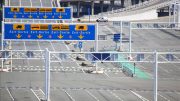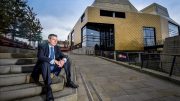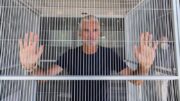When Russians went to the polls in March 2000, they had high hopes for democracy and stability, writes Geoff Kitney. They had chosen a new course under a new young leader.
Twenty-one years ago, it was so different.
On a bright, crisp late-March morning I walked with Vladimir and Natalya towards a polling place carrying hopes they almost dared not hold.
We were in Moscow and they and their fellow Russians were about to vote for Vladimir Putin to become Russian president.
“I feel very strongly that I have to vote. This will be the first time ever we have had a democratic transition from one President to another. I think we have the chance to become a normal country,” said Vladimir, an English teacher in the Moscow secondary school, where he earned $36 a month.
Since the collapse of the Soviet Union a decade earlier, Vladimir and his family had managed to survive economically with the aid of money transfers from a family friend living in Germany.
That friend was a maths teacher in the international school in Berlin which our children attended. Knowing I was going to Moscow to cover the 2000 Presidential election, he had asked me to look up his friends and suggested I might take them out to dinner.
Vladimir and Natalya had not been out to dinner for the past 10 years. They couldn’t afford it.
It had been a wonderful night in a classy Moscow restaurant (except for the rather chilling message on arrival which advised customers to leave any weapons they were carrying at the desk).
The couple, who had two small children, talked optimistically of the future.
They did not know much about Putin, but they put their faith in him to take Russia to a better future. “He is young and he says he believes in democracy,” said Vladimir.
If I heard Russians say ‘we just want to be a normal country’ once, I had heard it dozens of times.
Just before the vote Putin had addressed the Russian people with this promise: “Freedom of speech, freedom of conscience, freedom of the press, the right to private property – all these basic principles of a civilized society will be reliably protected by the state.”
A little earlier I had met Igor, a recently-self-employed journalist who was trying to start a newsletter on defence matters and was looking for help connecting with an international audience. Igor and his wife, Svetlana, had been propulsion engineers working somewhere in the Soviet Union’s military nuclear missile development programme. They had both lost their jobs after the collapse of the Soviet Union and were scratching to make a living.
Igor was a bit more circumspect about Putin. “We will see,” he said when asked what future he saw under Putin. “We don’t know much about him. He was KGB,” he said, with an air of doubt.
But, he added: “I hope Putin can change things for the Russian people. I think many Russian people will trust him to do this.”
I also met Ludmilla, a friend of a former Berlin-based western diplomat who had introduced her to us.
She was a guide in the Kremlin Museum, inside the Kremlin itself. Her main job was to guide visitors through the museum’s fabulous collection of priceless Faberge eggs.
Ludmilla was a divorcee who had lost a teenage daughter to a drug overdose. She was deeply tired of the chaos of life in Russia under Boris Yeltsin. She desperately hoped Putin would finally make Russia a normal country because if he didn’t, she would prefer to go back to the days of the USSR. At least then, she said, everyone had a job, there was affordable medicine for everyone and it was possible to get a good education.
“What is so-called freedom worth if you don’t have those things,” she said after showing us around the Kremlin, a surreal experience given that for most of my life I had been educated to believe that the Kremlin was the centre of the evil empire of Soviet communism with the cross-hairs of western nuclear missiles fixed on it.
I was in Moscow just three months after the sudden resignation of Boris Yeltsin as Russian president. The news had come through as we were charging our glasses in Berlin, ready to toast the arrival of the new millennium – and waiting to see whether or not the predicted chaos of the global computer system would hit as the clock struck midnight. As Europe correspondent for Fairfax newspapers in Australia, I had to put down my glass and start writing the Yeltsin story.
I had been in Russia several times over the preceding three years, each time to cover yet another crisis in the chaotic rule of Boris Yeltsin. By the time he decided to resign, Russians were embarrassed about their president and the state of their country.
Communism had gone but chaos had replaced it. If I heard Russians say “we just want to be a normal country” once, I had heard it dozens of times.
Putin had been plucked from obscurity to be nominated as Yeltin’s successor. But even with knowing little about him, Russians saw a chance that this time it might be different. Putin won the March 26 presidential election easily.
‘Freedom of speech, freedom of conscience, freedom of the press, the right to private property – all these basic principles of a civilized society will be reliably protected by the state.’
Vladimir Putin
Back in Berlin after the election I tried to find out more about Putin, from his time as a KGB operative in the nearby former east German city of Dresden, where he had served until the fall of the Berlin Wall in 1989. There was not much to report – except that he had been pictured confronting a mob of demonstrators in front of the Soviet offices in Dresden. The crowd had just ransacked the offices of the Stazi, the East German secret police, and were intending to do the same to the unwelcome Russians.
Putin reportedly yelled at the crowd that he would call in Russian tanks to defend the offices if they chose to go ahead. In fact, when Putin and his Russian colleagues had tried to get authority from Moscow to use force to defend Russian property no-one in Moscow answered their calls. Had the mob attacked, Putin and his colleagues would have been defenceless.
Insiders who have followed Putin’s career claim that the incident had a profound effect on him. It stirred in him a deep resentment at the failure of his own country to come to the aid of its citizens. It is also said that Putin came away from that experience with a phobia about people taking power into their own hands to overthrow authority.
Had the Russians with whom I spent that day on March 26, 2000 known this about Putin would they have felt differently?
Impossible to say. But the sense that now was the chance for Russians to choose a new course under a new young leader was very powerful that day.
The last time I was in Russia was in May 2006, to cover a meeting of the G8 leading industrialised countries in St Petersburg. Its leaders were meeting at the Constantine Palace at Steina, some distance from St Petersburg on the shore of the Gulf of Finland. The media was ferried to and from the G8 meeting by hydrofoil.
Like every experience of being in Russia, it was a richly rewarding few days of contact with ordinary Russian people. We toured the Hermitage, we saw Swan Lake at the Mariinsky Theatre, my wife travelled around the city on the local buses on which, despite the language problems, people were only too willing to help with directions and advice – just as I had always found Russians to be.
Putin was a son of St Petersburg. At that stage, his popularity was sky high. Locals were proud that he had brought world leaders to their city. It is one of the great tragedies of history that the Russian people have been so cursed by their leaders.
Over the years since then I have lost touch with the people with whom I walked and talked to as they first voted for Vladimir Putin in March 2000.
She desperately hoped Putin would finally make Russia a normal country because if he didn’t, she would prefer to go back to the days of the USSR.
Russia was suspended from the G8 after its annexation of Crimea in 2014 and declared its intention in 2017 to permanently stay out of the G8 – a symbolic step back into international isolation and anti-western paranoia.
No doubt, as Russians have done for centuries, they will stoically battle on, living the lives that the circumstances of living under yet another Russian strongman permit, relieving the despair with the subversive black humour for which Russians are famous.
But as I watch the terrible events unfolding as Russian forces enter Ukraine and see Putin on TV sounding paranoid and angry and making dark, veiled threats to the rest of the world, I can’t help thinking about the lost hopes of 21 years ago.
Headline image credit: Shutterstock
